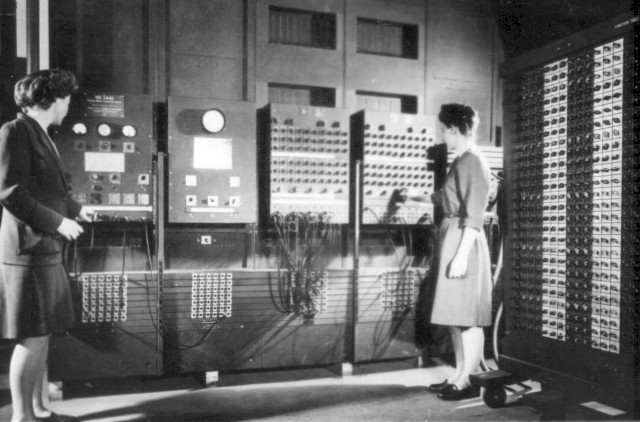Philadelphia’s a city known for its firsts: the first free library system, the first zoo and even first residential street in America were started here.
But if it’s up to longtime tech exec Jim Scherrer, we’d be talking more about one of Philly’s other firsts — the first computer.
Scherrer wants more Philadelphians to know that the ENIAC, the first electronic general-purpose computer, began as a secret project at the University of Pennsylvania, funded by the Army, in 1943. Parts of the machine remain at Penn’s Moore School today.
“It kind of seems like a glaring omission and marketing opportunity for Philly,” Scherrer said.
Scherrer, the founder and CEO of Ally CRM Software, said he started putting feelers out a few years ago to see if others thought the idea of space dedicated to the history of computers had merit.
“The epiphany came about five years ago,” Scherrer told Technical.ly Philly. “There’s the Newsuem in Washington and museums for tons of other inventions. It seemed obvious that people were missing an opportunity to celebrate Philly’s historical milestone of creating the ENIAC.”
Thus, the Compuseum organization was born.
It now has about 125 “friends,” or supporters of the idea, including Gini Mauchly-Calcerano, daughter of John Mauchly, a co-designer of the ENIAC.
Mauchly-Calcerano’s mother Kay McNulty also worked as a “computer” for the Army, calculating trajectories for guns by hand with a desk calculator.
“She was one of six women chosen from that team to figure out how to put mathematical problems on the ENIAC,” Mauchly-Calcerano said. “Essentially, they were the first computer programmers. This all happened between 1942 and 1946, so this important work was all done before I was born.”
When the pair had children, Mauchly-Calcerano said, her dad continued to develop computers, while her mom stayed home where she acted as a sounding board for his ideas.
“It was a very interesting way to grow up,” she said. “Both of our parents were very interested in everything — except sports — and mom ran the household in the most organized fashion. Programming came naturally to her.”
For now, Scherrer sees the organization curating exhibits about computers and their development across the city with donated items. One is currently housed at the Venture Cafe at the University City Science Center.
They’ve received donated items like a 1980s 10 megabyte hard drive from IBM, ENIAC vacuum tubes, components from some of the largest computers and collections of Byte and PC magazines.
“Certainly we’d love an Apple 1,” Scherrer added, but the last one was just sold.
The museum isn’t just an idea Scherrer and friends of the Compuseum kick around. They’ve got a proposal for how the building might look, a mission statement, plans for the entrance of the museum and an outline to tell the story computers.
Scherrer said he realizes it’s a tad presumptuous to call it the Compuseum without yet having a physical museum yet.
“But with the right momentum,” he said. “You can build anything.”







